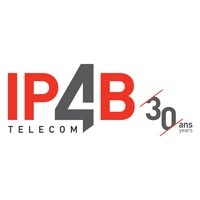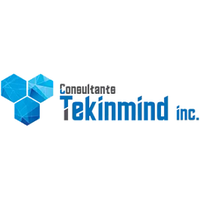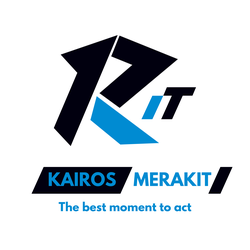Certifications and accreditations are vital indicators of quality, expertise, and professionalism in the IT services industry. They serve as benchmarks for assessing a company's capabilities and assure clients that they are working with a trusted partner. In a field as dynamic and fast-evolving as IT, these credentials not only validate technical skills but also demonstrate a commitment to staying updated with industry standards and best practices. Understanding the importance of certifications and accreditations can help businesses make informed decisions when choosing an IT services company.
One of the primary reasons certifications matter is their role in establishing credibility. Certifications like ISO 27001 for information security management or ISO 9001 for quality management provide evidence that a company follows structured and internationally recognized processes. For instance, ISO 27001 demonstrates that the company has implemented robust systems to safeguard sensitive information, making it an essential certification for IT firms handling data-sensitive projects. These certifications are issued only after rigorous assessments conducted by external auditing bodies, ensuring that the certified company meets strict criteria. For businesses seeking IT services, these certifications are a clear indicator that the firm can be trusted with critical operations.
In addition to organizational certifications, individual accreditations held by the staff of an IT services company are equally important. Certifications like CompTIA A+, Microsoft Certified: Azure Solutions Architect, Cisco Certified Network Associate (CCNA), and Certified Information Systems Security Professional (CISSP) validate specific skills that are highly relevant in the IT domain. For instance, a CISSP certification shows that an IT professional possesses advanced knowledge of cybersecurity, including designing and managing secure systems. Similarly, a CCNA certification demonstrates expertise in networking technologies, making the professional highly competent in handling network infrastructure. When an IT company has a team of certified professionals, it enhances their capability to deliver high-quality services.
Another significant aspect of certifications is their role in keeping companies and professionals up-to-date with technological advancements. In the IT industry, technologies evolve rapidly, and staying current is crucial to maintaining competitiveness. Certifications typically require ongoing education and periodic renewal to ensure that the certified entity remains proficient. For example, cloud certifications such as AWS Certified Solutions Architect or Google Cloud Certified Professional Cloud Architect often involve exams that reflect the latest updates and trends in cloud computing. By choosing an IT services company with professionals holding such certifications, businesses can be confident they are receiving support from a team that understands and applies the most recent innovations.
Certifications also contribute to improved efficiency and reduced risks. By adhering to the frameworks and methodologies prescribed in certifications like ITIL (Information Technology Infrastructure Library) or COBIT (Control Objectives for Information and Related Technologies), IT services companies can streamline their operations and deliver consistent results. ITIL, for instance, focuses on aligning IT services with business needs, enabling better resource allocation and improved service quality. COBIT, on the other hand, provides governance frameworks that help businesses manage risks and ensure compliance with regulations. By employing these certified methodologies, IT firms can offer clients more reliable and efficient services.
From the client’s perspective, certifications act as a measure of quality assurance. When outsourcing IT services, businesses often face the challenge of evaluating multiple vendors and differentiating between their capabilities. Certifications provide an objective criterion that simplifies this process. For instance, if two companies offer similar services, the one with certifications like ISO 27001 or SOC 2 compliance will likely have the edge, as these credentials signify a higher level of operational excellence. This assurance is particularly valuable for businesses operating in regulated industries such as healthcare, finance, or government sectors, where compliance with specific standards is mandatory.
The value of certifications extends beyond technical expertise and operational processes. They also reflect an IT services company’s commitment to ethical practices and customer satisfaction. Certifications like GDPR (General Data Protection Regulation) compliance indicate that a firm respects privacy laws and is committed to protecting client and customer data. Similarly, certifications in project management, such as PMP (Project Management Professional), demonstrate a focus on planning, execution, and successful delivery of projects. This holistic approach to professionalism ensures that clients receive not just technical solutions but also a seamless and trustworthy partnership.
It is also important to consider regional and industry-specific certifications. For instance, in North America, SOC 2 compliance is often required for IT services firms working with cloud-based solutions, as it ensures adherence to rigorous security, availability, and confidentiality standards. In Europe, GDPR compliance is a critical certification for any IT firm handling data. Industry-specific certifications, such as HITRUST for healthcare or PCI DSS for payment processing, further enhance an IT company’s suitability for specialized sectors. By seeking IT service providers with relevant certifications, businesses can ensure alignment with industry-specific requirements and avoid potential regulatory pitfalls.
While certifications undoubtedly bring numerous benefits, achieving and maintaining them involves significant investment in time, resources, and commitment. IT companies must dedicate considerable effort to training their employees, upgrading their systems, and undergoing regular audits. However, this investment pays off in the form of increased trust, client satisfaction, and competitive advantage. For clients, partnering with a certified IT services firm reduces risks and ensures a higher likelihood of success in their IT initiatives.
Clients should also be aware that not all certifications carry equal weight. Some certifications are issued by globally recognized bodies, such as ISO or CompTIA, while others may be less stringent or relevant. It is crucial to research the credibility of the certification body and the relevance of the certification to the specific IT services being sought. Additionally, certifications that require ongoing renewal are generally more valuable, as they ensure continued adherence to current standards.
When evaluating potential IT service providers, it is helpful to ask about their certifications and accreditations during the consultation phase. Understanding which certifications a company holds and how they apply to the services being offered can provide valuable insights into the firm’s capabilities and expertise. Clients can also request evidence of certifications, such as audit reports or certificates, to validate claims. By doing so, businesses can make informed decisions and choose a partner that aligns with their specific needs and goals.














































